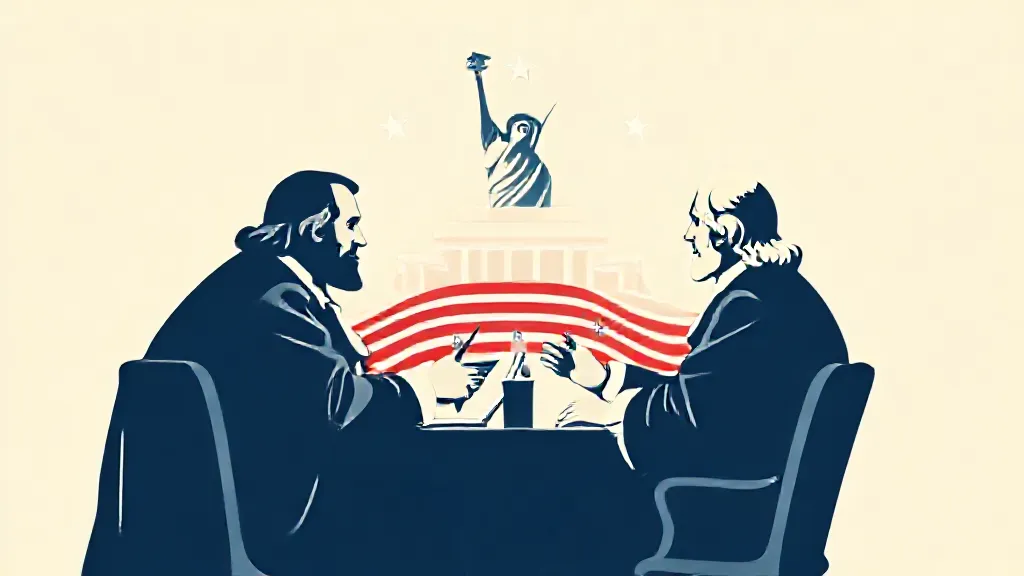The Founding Fathers of the United States are often celebrated as the architects of American democracy, but their contributions extend far beyond the mere establishment of a new nation. Their revolutionary ideas and philosophies were rooted in Enlightenment thinking, which emphasized reason, individualism, and skepticism of traditional authority. This article explores what made these men revolutionary thinkers and how their ideas continue to influence modern democratic principles.
The Enlightenment Influence on Revolutionary Thought
The Enlightenment was a European intellectual movement of the 17th and 18th centuries that championed reason and scientific thought over superstition and religious dogma. Thinkers such as John Locke, Jean-Jacques Rousseau, and Montesquieu greatly influenced the Founding Fathers. Locke's theories on natural rights, which posited that individuals are entitled to life, liberty, and property, became foundational to the Declaration of Independence.
Rousseau's concept of the social contract inspired the idea that government derives its power from the consent of the governed, a radical notion at the time.
Dissent Against Monarchical Rule
The Founding Fathers were not only inspired by Enlightenment ideals but also motivated by their experiences under British rule. The oppressive nature of monarchy, exemplified by King George III's policies, fueled their desire for a government that was accountable to its citizens.
Figures like Thomas Jefferson and Benjamin Franklin articulated their dissent through pamphlets and essays, arguing for self-governance and the inherent rights of individuals, paving the way for a revolutionary break from tradition.
The Role of Revolutionary Documents
The writings of the Founding Fathers, particularly the Declaration of Independence and the Constitution, served as revolutionary documents that articulated their vision for a new nation. The Declaration, drafted by Jefferson in 1776, boldly proclaimed the colonies' right to revolt against tyranny and outlined the philosophical underpinnings of American democracy.
The Constitution, ratified in 1788, established a framework for governance that balanced power among branches of government, reflecting the revolutionary idea of checks and balances.
The Concept of Liberty and Equality
Central to the revolutionary thought of the Founding Fathers was the concept of liberty. They envisioned a society where individuals could pursue their own happiness without undue interference from the government.
However, their definition of equality was limited, primarily extending to white male property owners. The contradictions between their ideals and the realities of slavery and gender inequality are critical to understanding the complexities of their revolutionary legacy.
The Impact of Revolutionary Ideals on Future Generations
The revolutionary ideas of the Founding Fathers laid the groundwork for future movements advocating for civil rights and social justice.
Their principles inspired abolitionists, suffragists, and civil rights activists who sought to expand the definitions of liberty and equality. The language of the Declaration of Independence has been invoked in countless struggles for justice, demonstrating the lasting impact of their revolutionary thought.
The Global Influence of American Revolution
The American Revolution not only transformed the United States but also had a profound influence on other nations.
The principles espoused by the Founding Fathers inspired revolutions in France, Latin America, and beyond. The idea that people could overthrow oppressive regimes and establish governments based on democratic principles resonated worldwide, contributing to a global wave of revolutionary movements in the late 18th and 19th centuries.
Critiques and Reevaluations of Founding Principles
In contemporary discourse, the revolutionary ideas of the Founding Fathers are often critiqued for their limitations.
Scholars and activists highlight the exclusionary nature of their vision, particularly regarding race and gender. This critique has led to a reevaluation of their contributions, prompting a broader discussion about who is included in the narrative of American democracy and how revolutionary ideals can be applied to address ongoing inequalities.
Conclusion: The Legacy of Revolutionary Thinkers
The Founding Fathers were revolutionary thinkers who challenged the status quo and laid the foundation for a democratic society.
Their ideas about government, rights, and individual freedoms continue to resonate today, reminding us of the ongoing struggle for equality and justice. As we reflect on their legacy, it is essential to recognize both their contributions and the complexities of their vision, ensuring that the revolutionary spirit they ignited remains alive in contemporary society.
